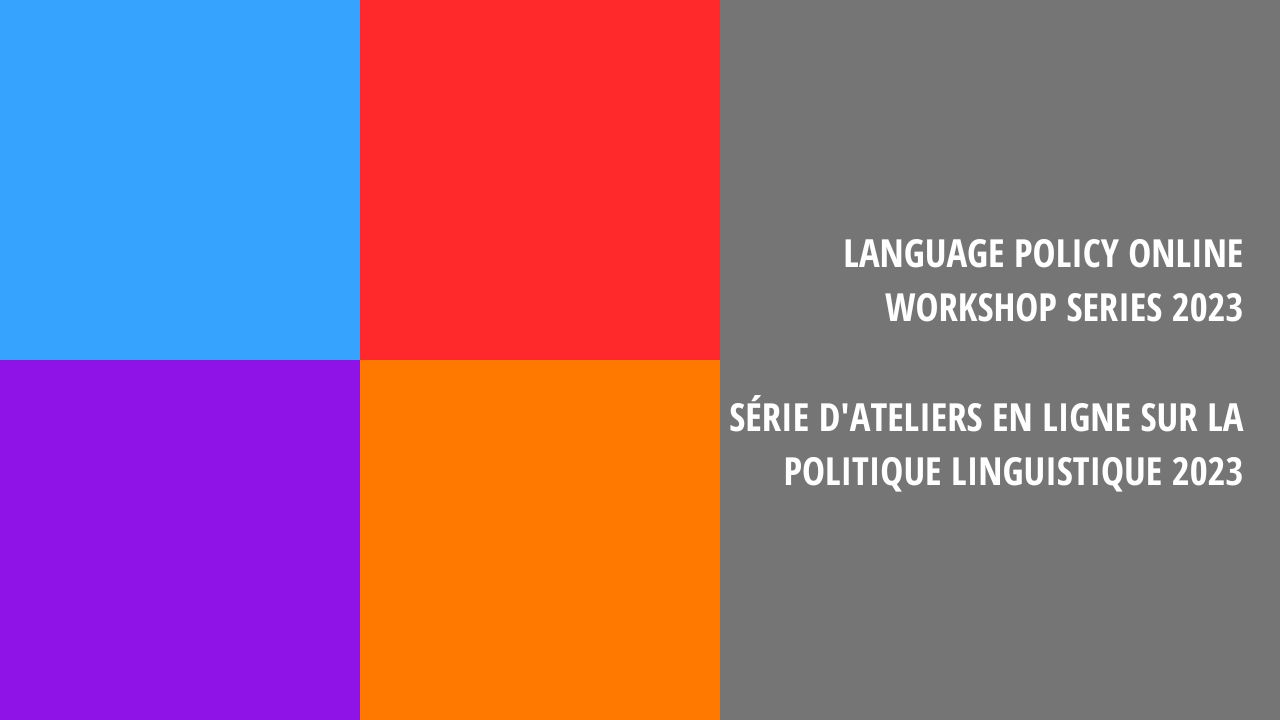The third workshop of CEFR Online Workshop Series 2023 entitled "Putting the action-oriented approach into practice" took place on April 6 and May 10, 2023.
Organized in two sessions, the goal of these workshops was for participants to reflect on how to put the action-oriented approach into practice. In the first session (April 6), after a quick review of key concepts, participants worked on building scenarios, exploring the elements that make up the scenarios and the links that unite these elements. The work continued in groups, sketching scenarios, keeping in mind individual contexts.
Between the first and second sessions, participants had the opportunity to further develop the draft scenarios and, if possible, to implement them in their context.
At the second session (May 10), the scenarios developed were shared and discussed, with the aim of drawing conclusions and sharing perspectives for the further implementation of the action-oriented approach.
The workshop was bilingual, offered in English and in French.
The workshop was facilitated by Danielle Hunter, Rosanna Margonis-Pasinetti and Evelyne Bérard.
Danielle Hunter has taught French as a Second Language (FSL) in the elementary and secondary panels for over 20 years. Before pursuing her PhD in Language and Literacies on a full-time basis at the University of Toronto/OISE in 2022, Danielle was the FSL, Classical and International Languages Consultant at the Durham District School Board (DDSB) in Ontario, Canada. Danielle has authored multiple pedagogical resources on the Common European Framework of Reference for Languages (CEFR) and the Action-oriented Approach, and regularly presents and offers coaching in these areas. In 2021, Danielle was appointed as one of seven international CEFR Consultants for the Council of Europe. In addition, Danielle was part of the provincial writing team for the revised FSL Ontario Curriculum, and is an accredited Diplôme d'études en langue française (DELF) examiner/scorer. Danielle holds an M.Ed. from the University of Toronto/OISE in Curriculum and Teacher Development.
Rosanna Margonis-Pasinetti is a graduate of the University of Geneva and the Séminaire pédagogique du canton de Vaud. She has taught languages to adults and adolescents for many years, and has been involved in teacher training for over 20 years. She is currently a member of the Teaching and Research Unit Didactics of Languages and Cultures at the HEP Vaud and a teacher trainer in the didactics of Italian as a foreign language. Her research and development interests focus on the action-oriented, plurilingual and intercultural dimensions of language teaching and on language policy instruments. In Switzerland, she has been involved in the implementation of language education policy, both at the regional French-speaking level and at the national trilingual level. She has been a member of the CEFR Expert Group since 2018.
Evelyne Bérard is currently a consultant and associate expert with France Education International, and was previously a lecturer and the director of the Centre de Linguistique Appliquée de Besançon. She has a PhD in Linguistics and Didactics. She has carried out numerous expert and training missions abroad in the context of linguistic and educational cooperation projects in Africa, Latin America, Asia, Australia and Europe and was attaché for educational cooperation at the French Embassy in Athens. She is the co-author of several French teaching courses based on the CEFR and the author of books and articles on the teaching of French as a foreign language.
Download Handout: Template
Download Background reading: Putting the action‐oriented approach into practice
Download Presentation 1
Download Presentation 2
Watch Presentation 1.






